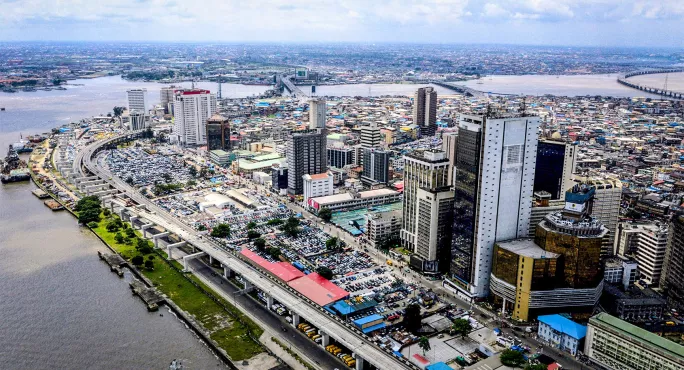
- Home
- Analysis
- Specialist Sector
- Why we chose Nigeria for our next international school
Why we chose Nigeria for our next international school

All of us across Wellington College were thrilled to announce our plans to open a new school in Nigeria in 2027.
The school, , will deliver the English national curriculum up to A level and have capacity for 1,500 students aged 3 to 18, with both day and boarding places.
Nigeria is well placed for international school expansion: ISC Research shows that, in the past five years, Nigeria has seen 14 per cent growth in students in international schools. The population is growing rapidly, too - by 4.8 million every year, according to World Population Review.
Aligning values
Of course, strong potential for growth does not mean it is quick or easy to enter a new market. The decision to open a new international school is a complicated one.
Inevitably, there are different pressures for each stakeholder - the school, the new owners, investors and more - but first and foremost, any plans have to be guided by a clear focus on education and an intention to provide the best for future students.
This is why any decision has to be slow and considered. After all, plenty of people want to open new schools, but not all will demonstrate what James Dahl, Master of Wellington College, calls the ŌĆ£passionate and progressiveŌĆØ qualities we seek in a partner.
We also need to ensure partners align with our values of kindness, responsibility, respect, integrity and courage. If we donŌĆÖt see this in our early interactions, we donŌĆÖt take the discussion further.
Indeed, on one occasion, I ended what had seemed like a potentially promising collaboration when it became clear that a team leader did not come across as respectful and inclusive in their approach to colleagues.
Local customs
Thankfully, this was not an issue when working with Rendeavour, AfricaŌĆÖs largest new city developer, which clearly shared our commitment to education and the role we can play in becoming a clear part of the civic infrastructure of the country.
ŌĆ£This partnership reflects our long-term vision: to develop cities that empower people, attract global investment and set new standards for what is possible across Africa,ŌĆØ summarises Yomi Ademola, chairman, Rendeavour West Africa.
As always, itŌĆÖs important to ensure that a new setting is not just a clone of Wellington College in Crowthorne, but inhabits the identity of its new location and the pupils and staff that will fill its buildings.
For example, architects must show they can create a modern school with design motifs that are relevant to the country in question.
Legislation, taxation and administration
We also carefully consider market research, including on government legislation that will affect the school directly and indirectly.
Wellington College International Lagos will be located in Alaro City, in the Lekki Free Zone. This is a significant advantage not just because of the regionŌĆÖs geography and connectivity, but also because locating the school in this flourishing, dynamic environment will offer protection from recent currency volatility.
Other local regulations are always a consideration, too. In Thailand, for example, Thai students are permitted to attend international schools, but this is not the case in every country.
And in Indonesia, where we are opening next year, for every one expatriate teacher, there must be two roles for national passport holders. Tax regulations are also important, and can differ between expatriates and local staff, as is the case in India.
Ensuring good in-country support is also a big part of our process. The Department for Business and Trade in the UK is extremely helpful in opening doors to the team on the ground, which can help confirm decisions about which territories we might look at next.
We had a warm welcome at the British Embassy in Jakarta after confirming that our school will open there next year.
Similarly, the British Deputy High Commission in Lagos works closely with the Department for Business and Trade, which was very helpful for us in early discussions.
On-the-ground realities
Finally, there are more practical considerations. Will a new site have good proximity to public transport, for example? Conversely, if students are likely to be dropped off, traffic flow and security are important.
Size of plot and regulations such as permitted heights of buildings also need consideration; again, a good partner can help address these questions and find solutions as you work together.
With so many things to consider, itŌĆÖs clear that opening a new school overseas is far from a quick or easy process. When you can align everything, however, thereŌĆÖs no doubt that itŌĆÖs a really exciting moment.
Chris Woolf is senior international director at Wellington College
For essential weekly intelligence on the international schools sector, sign up for the
Want to keep reading for free?
Register with Tes and you can read five free articles every month, plus you'll have access to our range of award-winning newsletters.
Register with Tes and you can read five free articles every month, plus you'll have access to our range of award-winning newsletters.
Keep reading for just ┬Ż4.90 per month
You've reached your limit of free articles this month. Subscribe for ┬Ż4.90 per month for three months and get:
- Unlimited access to all Tes magazine content
- Exclusive subscriber-only stories
- Award-winning email newsletters
You've reached your limit of free articles this month. Subscribe for ┬Ż4.90 per month for three months and get:
- Unlimited access to all Tes magazine content
- Exclusive subscriber-only stories
- Award-winning email newsletters
topics in this article



